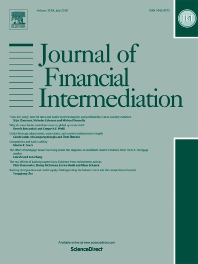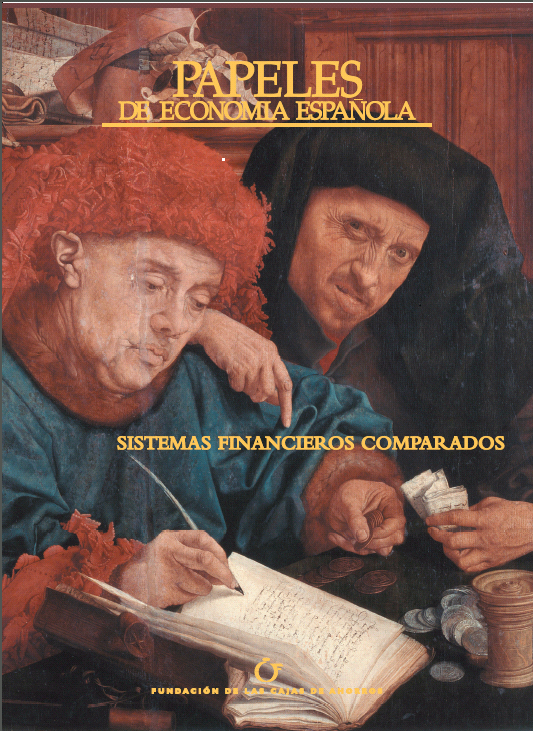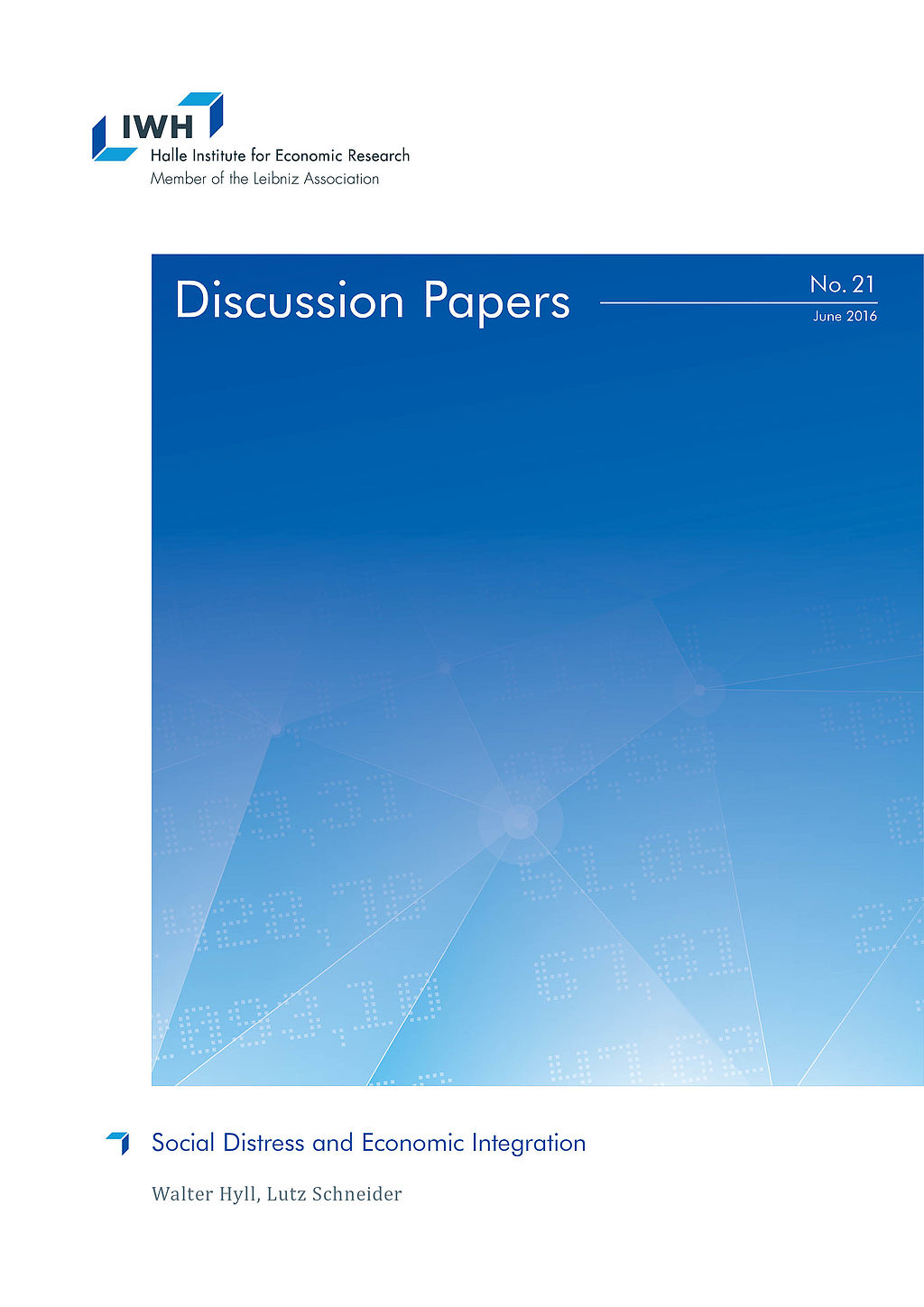Anpassungsfähigkeit und Resilienz des Finanzsystems
Diese Forschungsgruppe untersucht kritische Aspekte der Anpassungsfähigkeit und Widerstandsfähigkeit von Finanzsystemen. Sie analysiert die Auswirkungen von Naturkatastrophen auf Finanzsysteme, die Auswirkungen politischer Präferenzen für die grüne Transformation und die Bedeutung von Kultur in den Volkswirtschaften.
Forschungscluster
Finanzresilienz und RegulierungIhr Kontakt

Mitglied - Abteilung Finanzmärkte
PROJEKTE
07.2016 ‐ 12.2018
Relationship Lenders and Unorthodox Monetary Policy: Investment, Employment, and Resource Reallocation Effects
Leibniz-Gemeinschaft
We combine a number of unique and proprietary data sources to measure the impact of relationship lenders and unconventional monetary policy during and after the European sovereign debt crisis on the real economy. Establishing systematic links between different research data centers (Forschungsdatenzentren, FDZ) and central banks with detailed micro-level information on both financial and real activity is the stand-alone proposition of our proposal. The main objective is to permit the identification of causal effects, or their absence, regarding which policies were conducive to mitigate financial shocks and stimulate real economic activities, such as employment, investment, or the closure of plants.
01.2015 ‐ 12.2019
Interactions between Bank-specific Risk and Macroeconomic Performance
Deutsche Forschungsgemeinschaft (DFG)
Referierte Publikationen

Competition between Financial Markets in Europe: What can be Expected from MiFID?
in: Financial Markets and Portfolio Management, Nr. 1, 2009
Abstract
The Markets in Financial Instruments Directive (MiFID) could be the foundation of new trading platforms in Europe. This contribution employs insights from the theoretical and empirical literature to highlight some of the possible implications of MiFID. In particular, we argue that more competition will lead to more liquid markets, reflected in lower bid–ask spreads and greater depth. It will also lead to innovation in incumbent markets and stimulate the design of new trading platforms. MiFID has already introduced more competition, as evidenced by the startup of Instinet Chi-X, the announcement of new initiatives, including Project Turquoise and BATS, and the reactions of incumbent exchanges.

Softening Competition by Inducing Switching in Credit Markets: A Correction
in: Journal of Industrial Economics, Nr. 3, 2008
Abstract
In a recent article in this journal, Bouckaert and Degryse [2004] (denoted B&D) present a model in which banks strategically commit to disclosing borrower information. In this note, we point out an error in B&D and show that, although banks' information disclosure may indeed arise in equilibrium, it only does so if adverse selection is not too harsh.

The Impact of Competition on Bank Orientation
in: Journal of Financial Intermediation, Nr. 3, 2007
Abstract
How do banks react to increased competition? Recent banking theory significantly disagrees regarding the impact of competition on bank orientation—i.e., the choice of relationship-based versus transactional banking. We empirically investigate the impact of interbank competition on bank branch orientation. We employ a unique data set containing detailed information on bank–firm relationships. We find that bank branches facing stiff local competition engage considerably more in relationship-based lending. Our results illustrate that competition and relationships are not necessarily inimical.

Interbank Exposures: An Empirical Examination of Contagion Risk in the Belgian Banking System
in: International Journal of Central Banking, Nr. 2, 2007
Abstract
Robust (cross-border) interbank markets are important for the proper functioning of modern financial systems. However, a network of interbank exposures may lead to domino effects following the event of an initial bank failure. We investigate the evolution and determinants of contagion risk for the Belgian banking system over the period 1993–2002 using detailed information on aggregate interbank exposures of individual banks, large bilateral interbank exposures, and cross-border interbank exposures. The "structure" of the interbank market affects contagion risk. We find that a change from a complete structure (where all banks have symmetric links) toward a "multiplemoney-center" structure (where money centers are symmetrically linked to otherwise disconnected banks) has decreased the risk and impact of contagion. In addition, an increase in the relative importance of cross-border interbank exposures has lowered local contagion risk. However, this reduction may have been compensated by an increase in contagion risk stemming from foreign banks.

Repercusiones de la integración y consolidación de los sectores bancarios europeos sobre la innovación y las actividades de los emprendedores
in: Papeles de Economía Española, Nr. 110, 2006
Abstract
En este artículo se analiza si el programa de intensificación de la integración del sector financier europeo puede dañar a la innovación y al crecimiento en Europa. En particular, es preciso resaltar los problemas que dicha integración financiera puede ocasionar sobre los últimos avances en materia de desarrollo empresarial. La integración financiera, al intensificar la competencia y la consolidación del sector bancario europeo, podría poner en peligro la financiación procedente de las fuentes más innovadoras. Sin embargo, al sopesar los datos actuales, la conclusión es que estos problemas serían, a lo sumo, transitorios.
Arbeitspapiere

Corporate Governance Structures and Financial Constraints in Multinational Enterprises – An Analysis in Selected European Transition Economies on the Basis of the IWH FDI Micro Database 2013 –
in: IWH Discussion Papers, Nr. 3, 2015
Abstract
In our analysis, we consider the distribution of decision power over financing and investment between MNEs’ headquarters and foreign subsidiaries and its influence on the foreign affiliates’ financial restrictions. Our research results show that headquarters of multinational enterprises have not (yet) moved much decision power to their foreign subsidiaries at all. We use data from the IWH FDI Micro Database which contains information on corporate governance structures and financial restrictions of 609 enterprises with a foreign investor in Hungary, Poland, the Czech Republic, Slovakia, Romania and East Germany. We match data from Bureau van Dijk’s AMADEUS database on financial characteristics. We find that a high concentration of decision power within the MNE’s headquarter implicates high financial restrictions within the subsidiary. Square term results show, however, that the effect of financial constraints within the subsidiary decreases and finally turns insignificant when decision power moves from headquarter to subsidiary. Thus, economic policy should encourage foreign investors in the case of foreign acquisition of local enterprises to leave decision power within the enterprise and in the case of Greenfield investment to provide the newly established subsidiaries with as much power over corporate governance structures as possible.


















